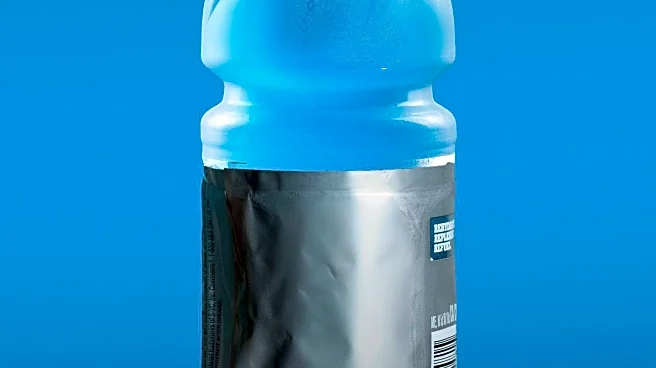What's Happening?
Superdrinks, marketed as convenient sources of nutrition, are facing criticism from experts who argue that they may not deliver the promised health benefits. Brands like AG1 and Huel claim to offer complete
nutrition through proprietary blends, but experts warn that these drinks may lack bioavailability and could contain undisclosed nutrient levels. The high cost and celebrity endorsements have contributed to their popularity, but experts emphasize the importance of whole foods for optimal nutrition.
Why It's Important?
The scrutiny of superdrinks highlights the need for transparency in nutritional products and the importance of evidence-based claims. As consumers seek convenient health solutions, understanding the limitations of processed drinks is crucial for informed decision-making. This could influence regulatory practices and consumer education, promoting a focus on whole foods and balanced diets.
What's Next?
Further research may explore the long-term health effects of superdrinks and their role in nutrition. Regulatory bodies could implement stricter guidelines for labeling and marketing claims. The food industry may respond by developing more transparent and evidence-based products.
Beyond the Headlines
The debate over superdrinks raises broader discussions on the role of supplements in health and the importance of dietary diversity. This could lead to increased interest in personalized nutrition and the development of products that align with individual health needs.









